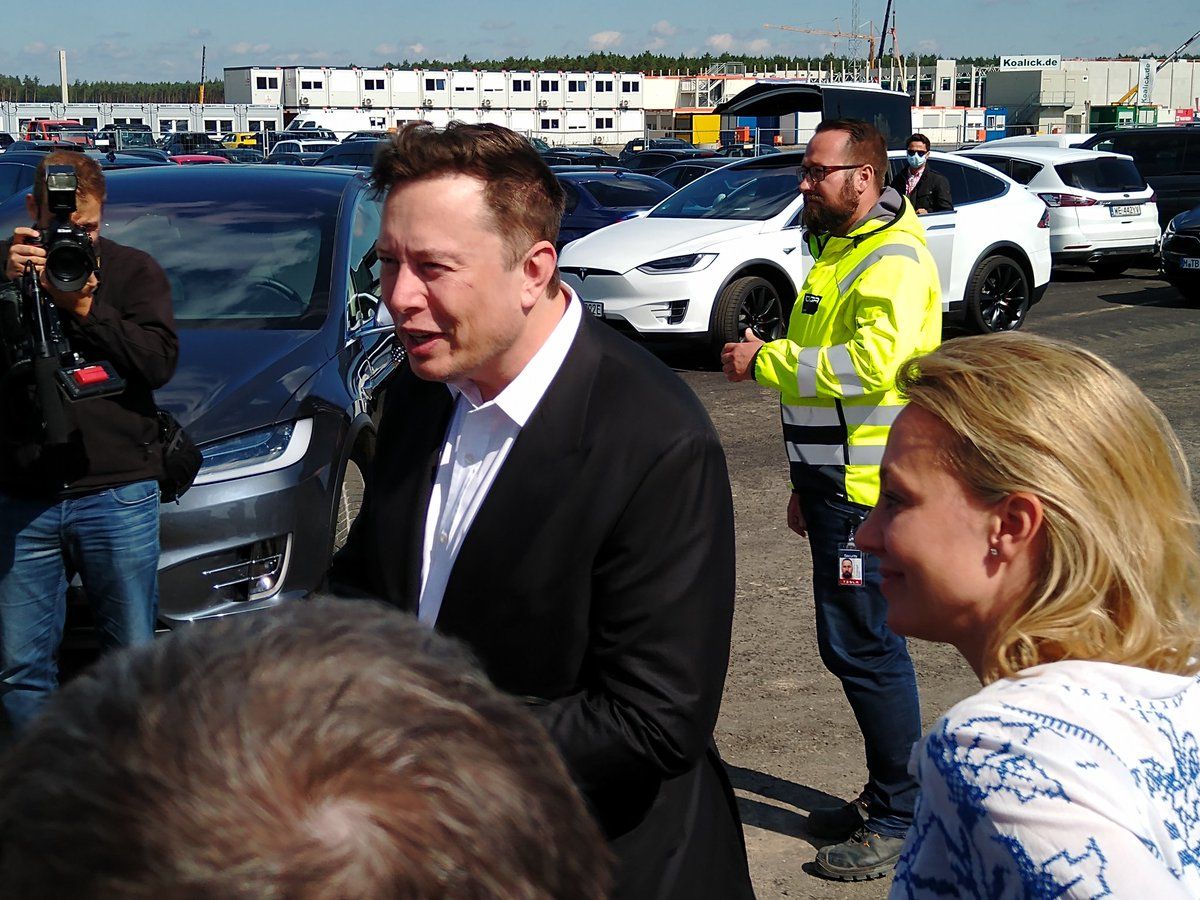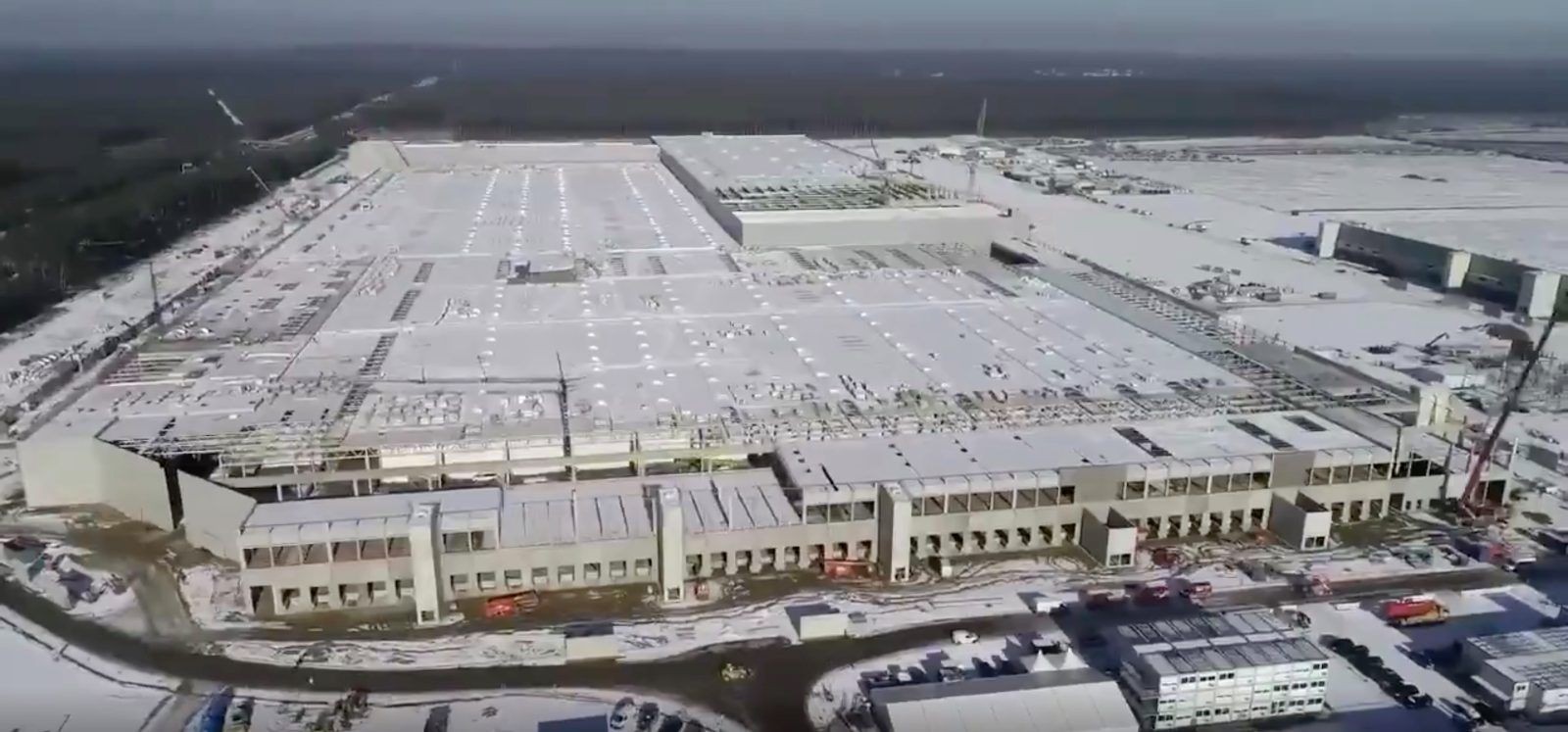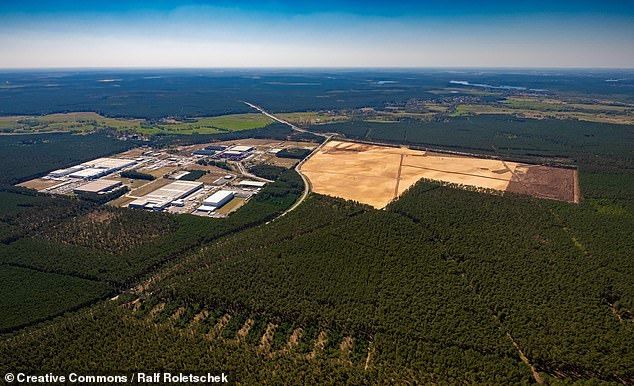Tesla's new German Gigafactory, 'Elon Musk ist ein Berliner'

It is by far the largest industrial settlement in the region for a century, and the Brandenburg Minister for Economic Affairs, Jörg Steinbach, has described it as an opportunity for the region to "become a leading location for the energy transition in Germany and Europe". Musk has promised to create 10,000 jobs and produce about 500,000 cars a year, starting with the Model Y, and to build the world's largest battery plant on site. His vision will put the region on the map.
Tesla hasn't had the smoothest road to construction in Berlin as it prepares for a new Gigafactory in Germany, and in December 2020, snakes in hibernation paused construction again. According to a report by the newspaper Tagesspiegel on Reuters, a German court has ordered Tesla to stop clearing a forest outside the capital because of the reptiles' long nap. But Tesla is back after the Frankfurt Administrative Court gave the electric car manufacturer permission. One hundred hectares of pine have already been felled, and another 86 hectares are likely to follow a court ruling last month.

Politicians speak of the balance sheet of their debt to Musk, who they think could easily have gone to Asia, where labor costs are lower and environmental controls and building standards are less stringent.
The State Environment Agency has not returned the roadshow's request for comment, and Tesla does not operate a PR department for field inquiries.
Not so long ago, in 2012, Tesla shares were worth $ 23 billion, a quarter of the value of Germany's largest automaker, Volkswagen. But the times have changed. Tesla's market capitalization has risen to over $ 700 billion, more than three times that of Volkswagen, Daimler and BMW - the three largest German automakers - combined.
To make matters worse for Tesla's German competitors, Musk is overseeing the finishing touches on his company's newest project - Tesla's newest gigafactory in a city southeast of Berlin.
The Silicon Valley electric car maker plans to start building cars outside of the German capital this summer, which threatens to disrupt traditional German car culture for internal combustion engines. When the Gigafactory Berlin-Brandenburg opens later this year, batteries, drives and ultimately 500,000 of Tesla's branded electric vehicles will be produced each year.
Tesla's Gigafactory promises to transform the sleepy settlement into one of the largest factory cities in Europe. 40,000 workers, an estimated half of whom commute from Berlin, about 32 km away.

This is Tesla's fourth Gigafactory - after Reno, Nevada, Buffalo, New York, and Shanghai - and the company's first in Europe. Musk chose Grünheide from other options across Europe because of its location - right on the autobahn, on a railway line and close to Berlin's new airport - and because construction would go quickly: two decades ago the city had plans for a BMW automobile plant approved, that was never built.
The new factory is not the only thing that Tesla finds easy in Germany. Earlier this month, Germany named Tesla one of eleven companies operating in the country to receive billions of dollars in government subsidies to increase battery cell production.
According to Hetzner, the European road transport sector causes a fifth of the continent's CO2 emissions, and German car manufacturers who specialize in large, heavy SUVs and sedans are falling behind in reducing emissions from their fleets.
Last year, Volkswagen missed its CO2 emissions target for its car fleet by just 0.5 grams per kilometer, forcing the EU to pay a fine of $ 121 million.
Two years ago, Fiat Chrysler Automobiles was facing bankruptcy when the EU threatened to pay a fine of US $ 2 billion for excessively high CO2 emissions from its vehicle fleet. Instead, the company has signed a deal with Tesla to merge fleets and cut Fiat Chrysler's emissions. The deal ensured Tesla would receive hundreds of millions of dollars annually - enough to fund its German gigafactory - and Fiat Chrysler was saved from bankruptcy.
This is a lucrative business for Tesla. The company has made $ 3.3 billion from eleven US states in the past five years, which, like the EU, is forcing automakers who cannot meet their emissions reduction targets to buy loans from companies like Tesla. However, this source of income promises to dry up in the years to come as EU automakers start making electric vehicles.
Tesla has a small advantage because it doesn't have to switch from old technology to new technology, but starts with new technology immediately. This simplifies things somewhat.
What might not be so easy for Tesla will be adapting to German union rules. In the United States, Tesla workers have filed complaints about low wages and poor working conditions, and Musk has resisted their efforts to organize. But IG Metall is a powerful force in Germany. In 2018, it won the right to a 28-hour work week and a 4% pay rise for its industrial workers after a series of strikes that cost the Germans.
